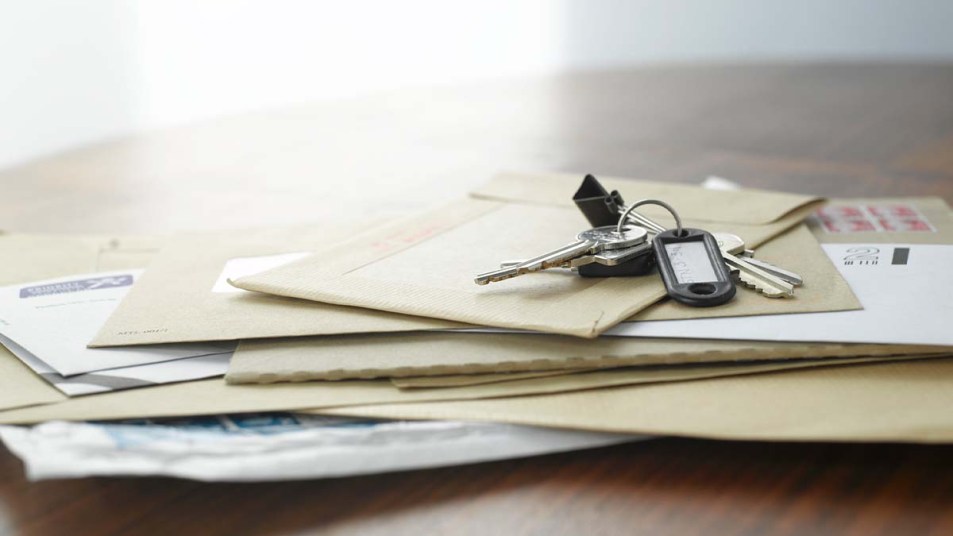Your Clutter Is Costing You Money: 6 Ways to Rid Your Home of It (and Save Cash)
Get more organized in no time.

From storage expenses to bills lost under junk mail, clutter can be costly and take up extra space. The good news is, you can eliminate those unnecessary bits of mail with a few simple tricks. Here’s how to reduce junk mail clutter to streamline your stuff and help boost productivity.
Make a mail station to avoid late fees.
Ugh, junk mail! Nearly half of us have misplaced a bill amid the catalogues and advertisements — often leading to late fees. The fix: Place a basket by the front door, then as soon as you walk in, separate out the bills and toss the junk mail in the basket for recycling so clutter doesn’t pile up.
Also smart: An over-the-door shoe organizer, says Jamie Novak, author of Keep This, Toss That. “Label each pocket 1 to 31, then as soon as you get a bill, drop it into the folder of the ‘day’ it needs to be dealt with or paid,” she says. “Every morning, peek at the pocket for that day and voilà — no more missed payments!”
Grab a pen to curb storage expenses.
A storage unit costs up to $200 a month, and we pay a price for stashing boxes in our home instead since it prevents us from using our space to its full potential. To the rescue: Label any boxes with today’s date, urges organizer Marissa Zheng. At the end of each month, sift through it to see if you need anything, then write a new date on the box. “If in a year, you haven’t used the items, recycling or giving them away will make your heart lighter and your space roomier.”
Also smart: If you can’t part with a sentimental item, like a gift, consider writing the giver a letter without sending it, expressing how much their gesture meant to you, says motivational speaker Blanca Varga. “This helps you let go of clutter, while holding on to memories.”
To nix fridge waste: Create ‘zones’
The average family throws away $1,500 worth of food per year, due to items going bad. The solution: Just keep foods that spoil easily, like meat and dairy, on the lowest shelf, where it’s coldest. Keep fruits and veg-gies on the middle shelf — studies show we’re much likelier to snack on them if they’re at eye level. Last, stash leftovers and ready-to-eat meals on the top shelf for easy access.
Also smart: Instead of buying extra condiments you don’t need, wrap a rubber band around containers, then roll the band down to the level of the contents, suggests Novak. This lets you see how much is left at a glance, so you’ll know exactly when to buy more — and no sooner.
Cash in on novels.
If you have a book series gathering dust, sell it on eBay, suggests Ann Eckhart, author of Beginner’s Guide to Selling on eBay. “For example, the complete Harry Potter series in hardcover is selling for $100, and the complete Twilight series will bring in $70.”
Earn big with old electronics.
Got a VCR, video game console or cassette deck stashed in a box? “People buy these items for their parts,” says Eckhart. Just be honest about the condition, and you can earn anywhere from a few bucks to hundreds.
Target toy collectors.
“Toys with small parts, like LEGOs, that parents may be looking to replace sell really well on eBay,” promises Eckhart. Also lucrative: toys from the late ’90s and early 2000s, which are soaring in popularity. “New and sealed Tamagotchis, for example, can fetch upwards of $200 on eBay!”
This article originally appeared in our print magazine, First For Women.
















